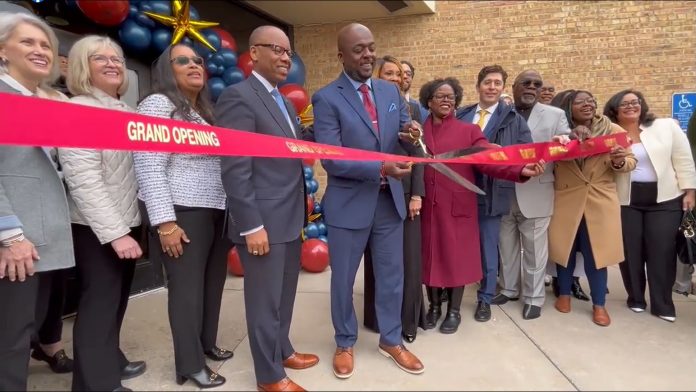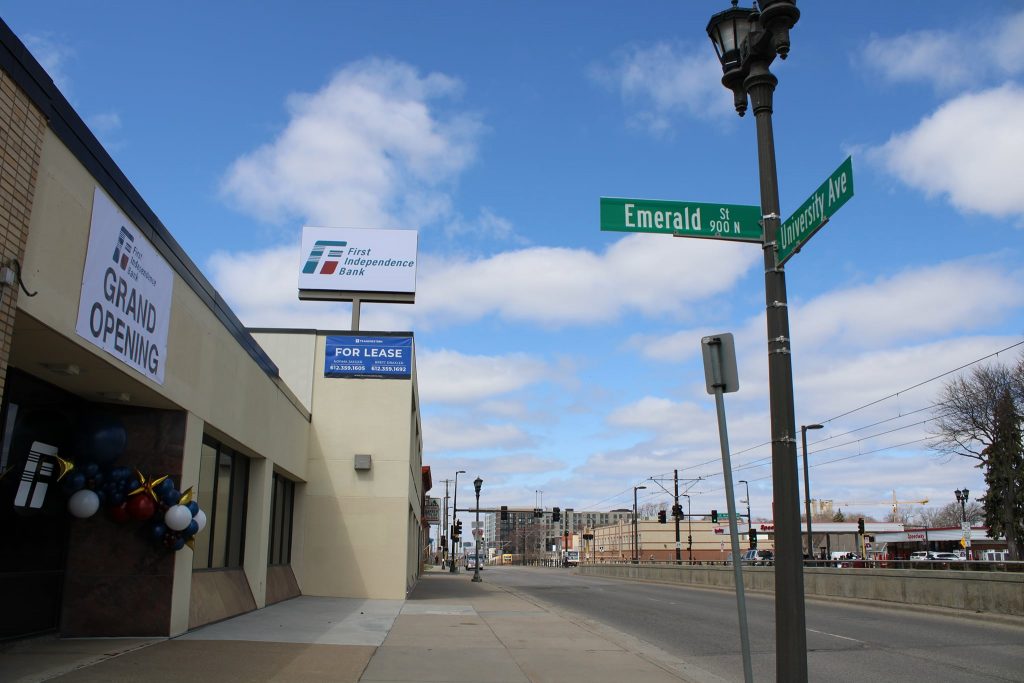

Residents, officials, and banking industry professionals gathered in Minneapolis Tuesday to celebrate the opening of the first Black-owned bank in the state of Minnesota.
First Independence Bank (FIB) is one of the largest Black-owned banks in the United States. It was established in 1970 in Detroit, Michigan, where it already has two branches. The bank offers basic banking services and consumer, mortgage, and business loans, as well as asset management services “with an affinity for underserved communities.”
“This effort is part of our plan to create a new model of inclusive economic growth in the area,” said Peter Frosch, the chief executive officer of Greater MSP, a nonprofit organization that provides resources for businesses and individual looking relocate to the Twin Cities area.
Historically, the U.S. banking industry has treated African Americans less favorably than its white customers. A 2020 report from the U.S. Federal Reserve found that less than 47% of financing applications by Black-owned business owners get approved. Even when they do get approved, African Americans are the least likely racial group to receive full funding, the report found.
The number of Black-owned banks in the United States has been declining since 2001. According to the Federal Reserve Bank of St Louis, between 2001 and 2007, the total number of Black-owned banks fell from 48 to 44. The trend persisted after the Great Recession, and by mid 2020, there were only 20 banks remaining, with combined assets of $5.45 billion. In comparison, there are over 5,000 non-Black owned banks in the United States, with the largest, JPMorgan Chase & Co., holding over $2 trillion in assets.

Despite the decline of Black-owned banks, Kenneth Kelly, the chief executive officer of FIB, said he was optimistic. The company had been thinking about expanding to Minnesota for some time, he said.
“When I got the call from one of the partner banks, I jumped at the chance to explore the opportunity,” Kelly said.
Danielle Squires, the head of diverse segments at Wells Fargo, talked about some of the collaborative efforts that the bank has for its new partner, including making its ATM services available to First Independence Bank customers at no charge.
“Having multiple choices to serve our communities is the right thing for our entire region,” said Squires. “Together we can work to address the wealth gap and economic disparities in communities of color.”
Russel Knighton, a retired African American who worked as a commercial and business banker for several major banks, said that, as a member of the community, he still had great interest in new initiatives to improve financial equity in his city.
“I am eager to see what new strategies First Independence can bring to improve our situation with inequity,” Knighton said.
Despite her advocacy work primarily being in healthcare, Rae Blaylark, the president and CEO of Sickle Cell Foundation of Minnesota, said she was passionate about all aspects of wellbeing, including financial prosperity.
“It’s important that we support these initiatives in order to begin the process of building generational wealth,” Blaylark said.
The number of Black-owned businesses has increased in recent years, but persisting inequities in lending have made it difficult for aspiring Black entrepreneurs to succeed. Although people of African descent make up 14.2% of the U.S. population, only 2.3% of 5.7 million companies were Black-owned, according to a Federal Reserve.
Clara Mothershed, a small business planning specialist at the nonprofit Aurora St. Anthony Neighborhood Development Corporation, said most Black-owned businesses fail within the first five years. The most common reason for failure of Black businesses is lack of access to cash and financing services.
“We have a lot of rebuilding to do,” Mothershed said. “We have to show up for ourselves if we want to produce tangible change.”
About Panashe Matemba-Mutasa, Mshale Reporter
Panashe is a general assignments reporter. She is a graduate of the University of Minnesota and a UC Berkeley Graduate School of Journalism Class of 2025.







